Coffee Export in Tanzania
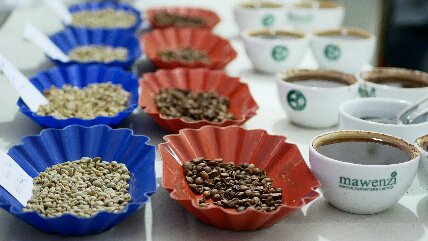
- alice
- Sept. 16, 2018
- Share
3pm - Dar es Salaam
After 1 dala dala, 2 bajaji, a short walk and a few minutes of hesitation on which way to walk in noisy streets around tazana bus station, we finally reached Dormans Coffee Export facilities, where Sam and David were waiting for us.
Dormans Coffee is a famous coffee exporters based in Nairobi, Kenya.But they also have a strong presence in Tanzania, both in the northern region of Arusha, Moshi, Kilimanjaro and Kigoma, as well as in the southern part of the country - Mbeya, Songwe, Mbanga
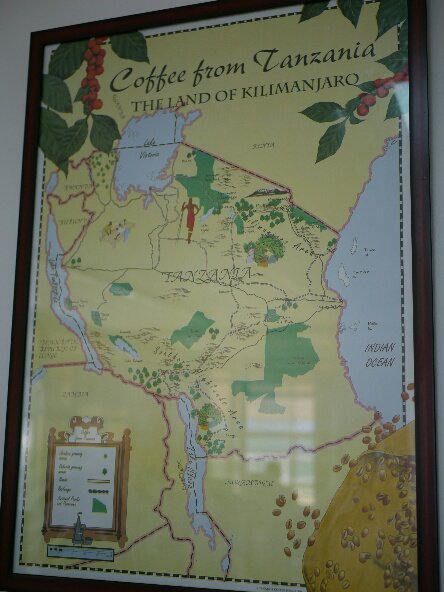
Dormans Coffee is a famous coffee exporters based in Nairobi, Kenya. they also have a strong presence in Tanzania, both in the northern region of Arusha, Moshi, Kilimanjaro and Kigoma, as well as in the southern part of the country - Mbeya, Songwe, Mbangaregion of Arusha, Moshi, Kilimanjaro and Kigoma, as well as in the southern part of the country - Mbeya, Songwe, Mbanga.
Sam Mburu is the Country Manager for Tanzania. He receives us with David Mollel, Head of export operations in Dar Es Salaam. After a brief introduction on ourselves and our project, Sam gives us a bit of background and explanations about the coffee history and context in Tanzania: how arabica was introduced by the missionaries first in the central region of Morogoro to be quickly brought to the rich lands of Kilimanjaro, Moshi and Arusha. This region has built his reputation over the centuries and the coffee there is still considered as the best of the country.
Is it still true? Well the least we can say is that quality greatly improved over the past years in Southern regions. Although not that reknown, Mbinga, Songwe and Mbeya, with younger trees and much progress on coffee processing, agricultural practises, are now providing qualitative coffee and are starting to make their name on the international coffee scene.
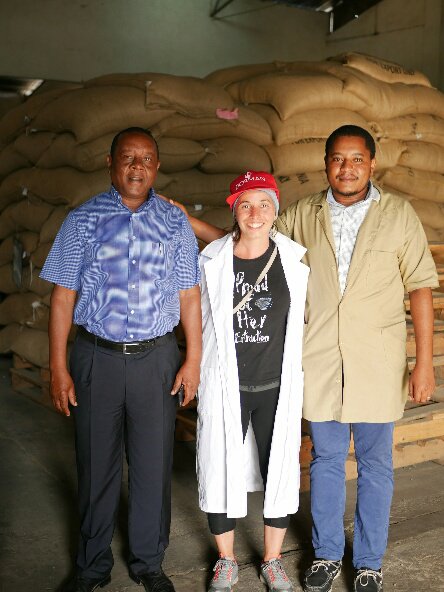
After this brief introduction, David takes us around the facilities and explain us the procedure for exportation. He explains us first that the coffees arrive here already cleaned and graded according to the requirements of the buyers. Dormans work with different central units (wet and dry mills) around the country. There the coffee is processed, dried, hulled and the selection is made according to the quality required before being sent to Dar es Salaam facilities.
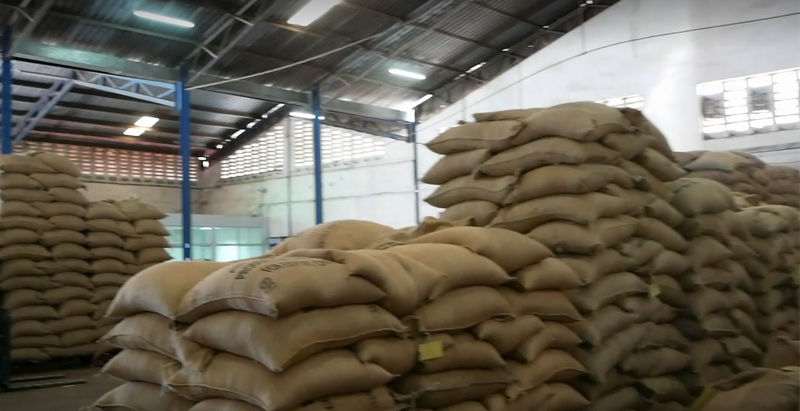
There it will pass a final quality check through two different machines: the first one for density - the lightest beans are separated as possibly having defects (stones, unripe, shell, broken etc...).
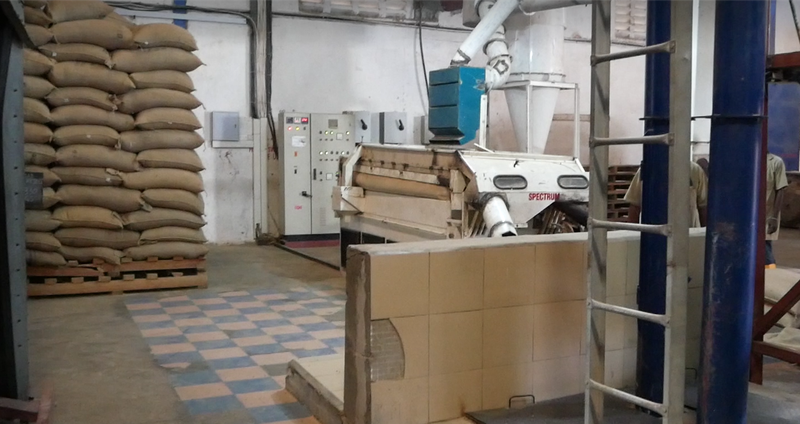
Then the best (heaviest beans) are sent too another machine that will make a further selection based on bean colour... The greener, the better! Once ready and cleaned according to the buyers' requirement coffee is packed, bags are marked and put on truck to be shipped on the boat in Dar es Salaam.
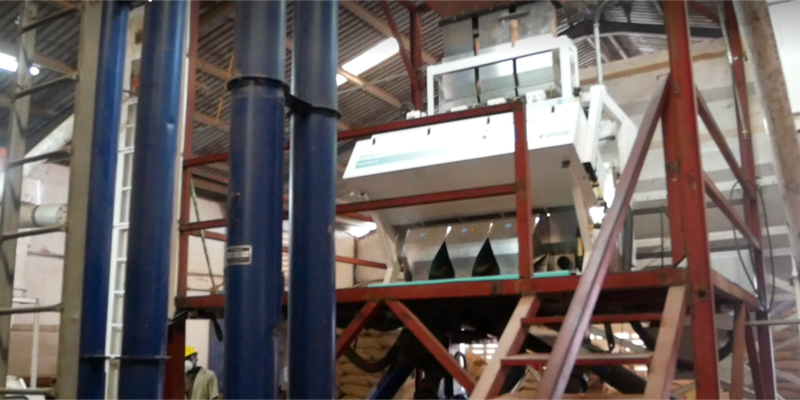
After the visit, we go to the cupping room and taste a few coffees before starting conversing about some issues of the coffee industry in Tanzania, especially the concerns induced by the new governmental regulations that impose to coffee farmers organized in cooperatives or coffee estates to sell their coffee through auctions thus preventing direct trade transactions between exporters and farmers.
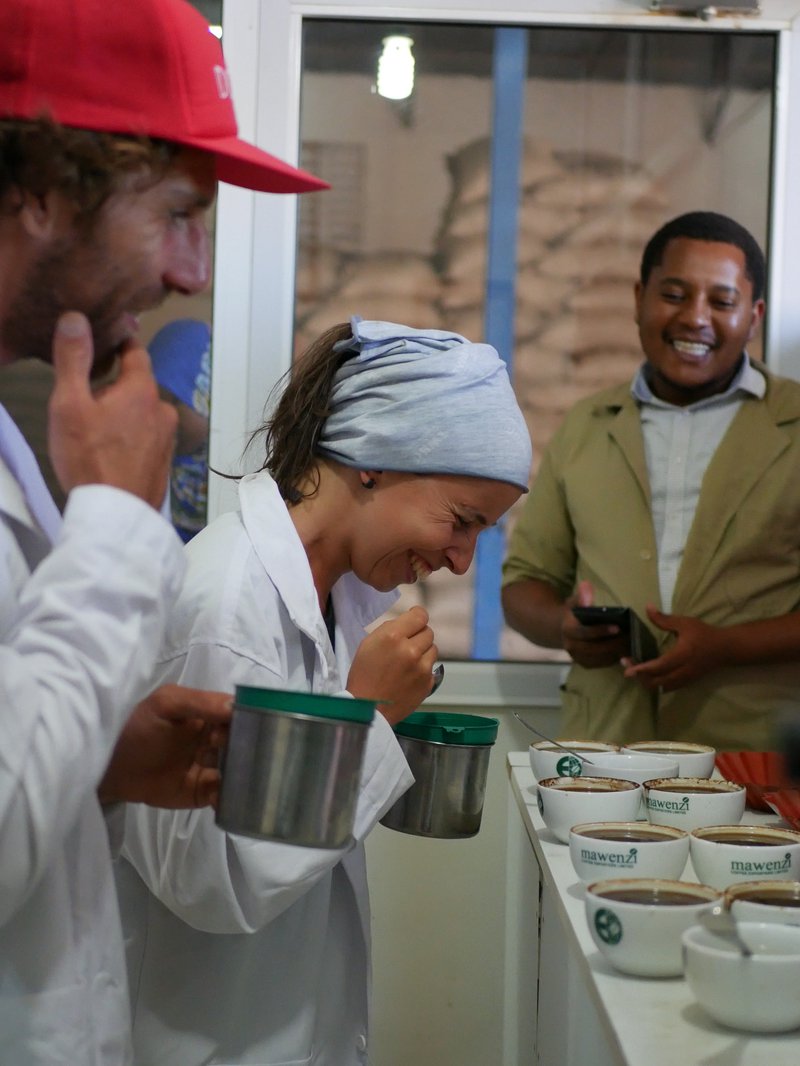
Not only are the buyers concerned by the additional delays of such a procedure but also for possible consequences on traceability and quality. Professionals of the sector regret the lack of consultancy and of transitional time before the application of this measure.
They also feared that all the work that has been done over the past 20 years, to improve quality and empowerment through training and material investment, might be lost due to the uncertainties and impediments of this new law.
This rule has been imposed to coffee and other commodities to improve the productivity, quality and conditions of the farmers... However, what may work for ones, might not be efficient for others. Coffee needs specific care, agronomic knowledge and capacities, sufficient investment in material and agricultural inputs, to ensure a good process and a good quality.
From the moment the cherry is harvested until the time it is stored in the warehouse, the coffee pass through many steps, imposing care, control and intervention of human hand at any moment. One mistake can ruin a whole batch, meaning lost of product, time and money for the producers.
Producers cannot bear the responsibility on their own. They need support of their buying partners, of cooperatives and of the State.Otherwise, they will give up on coffee and produce easier crops that don´t require so much care and dedication and that will give them better incomes. If they don't give up themselves, their children might do so.
Producers cannot bear the responsibility on their own. They need support of their buying partners, of cooperatives and of the State., they will give up on coffee and produce easier crops that don´t require so much care and dedication and that will give them better incomes. If they don't give up themselves, their children might do so.
Hopefully, the government already sees the side effects of this decision and organises a new consultation finds adequate solutions to support the industry.
Only time will tell...
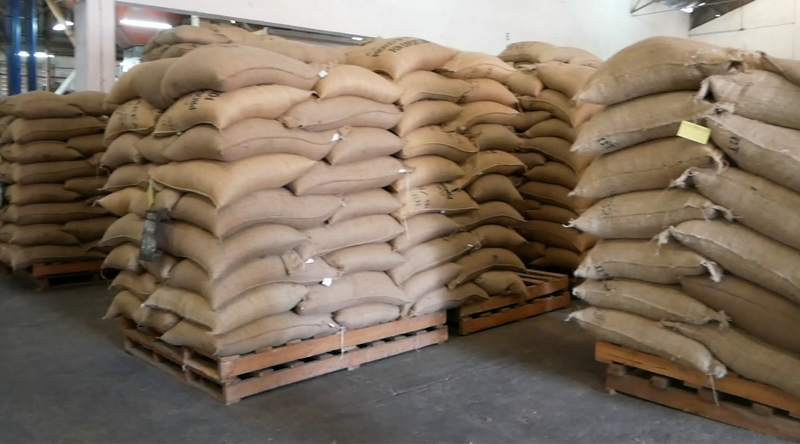

 Tanzania
Tanzania Colombia
Colombia Ethiopia
Ethiopia Guatemala
Guatemala Indonesia
Indonesia Kenya
Kenya Mexico
Mexico Philippines
Philippines Uganda
Uganda